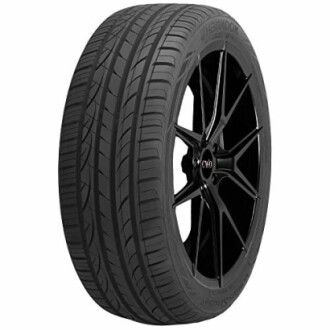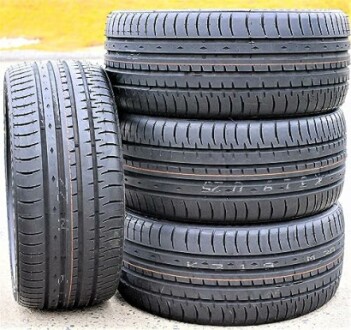
How to Choose the Best Tires for Your VW
Key Takeaways
- Understand your performance needs based on driving style.
- Consider weather conditions and seasonal changes.
- Learn about tire specifications: size, tread type, and load capacity.
- Choose between all-season and performance tires depending on your needs.
- Explore trusted brands for quality assurance.
Choosing the right tires for your Volkswagen (VW) vehicle is crucial for performance, safety, and efficiency. Whether you're looking to maximize your VW’s handling, fuel efficiency, or comfort, the right tires can make a significant difference. This guide will help you navigate the tire selection process by evaluating your performance needs and weather conditions.
Understanding Your Performance Needs
Performance needs vary depending on your driving style and the typical conditions you encounter. Here are some points to consider:
- Driving Style: Are you a spirited driver, or do you prefer a smoother, comfortable ride?
- Road Conditions: Do you drive primarily on highways, local roads, or off-road?
- Load Requirements: Will you be carrying heavy loads or towing?
Types of Tires
Understanding the types of tires available can help you select the best one for your VW:
| Type of Tire | Best For | Key Features |
|---|---|---|
| All-Season Tires | Versatile driving conditions | Good grip in both dry and wet conditions; moderate tread wear. |
| Performance Tires | High-speed, sporty driving | Enhanced handling, stability; reduced tread life. |
| Winter Tires | Cold climates | Deep treads for snow and ice; improved traction. |
Weather Considerations
Weather plays a crucial role in tire performance. Consider the following:
- Summer: When temperatures rise, using summer or all-season tires with good performance in dry conditions is vital.
- Winter: In colder climates, winter tires are essential for optimal traction. Look for those designed specifically for snow and icy conditions.
- Rain: Select tires with treads that help channel water away, reducing hydroplaning risks in wet conditions.
Top Tire Recommendations for Your VW
Here are two excellent tire options that cater to different driving needs:
HANKOOK Ventus S1 noble2 All-Season Radial Tire
This tire offers exceptional performance in both wet and dry conditions, making it perfect for year-round driving.
Learn MoreSet of 4 Accelera Phi All-Season Tires
Outstanding value for those who want reliable performance and durability at an affordable price.
Learn MoreChoosing the Right Tire Specifications
When selecting the right tire specifications, here is what to consider:
- Tire Size: Check your VW vehicle's manual for the recommended size. Different sizes greatly impact handling and comfort.
- Tread Type: Asymmetrical treads often offer enhanced performance in varied conditions.
- Load Capacity: Ensure that the tires can handle the load requirements of your VW.
Evaluating Tire Quality
Choosing a reputable brand can assure quality. Look for companies noted for durability, performance, and customer satisfaction:
- Bridgestone
- Michelin
- HANKOOK
- Accelera
Conclusion
Selecting the right tires for your VW is integral to your vehicle’s performance and safety. By understanding your performance needs, considering weather conditions, and evaluating specifications, you can confidently choose the best tires for your VW. Don't forget to consult your vehicle's manual and reach out to professionals if uncertain. For more detailed guides on VW modifications, visit our How-To Guides section.
Tips for Tire Maintenance
- Regularly check tire pressure and tread depth.
- Rotate your tires every 5,000 to 7,000 miles.
- Inspect your tires for any signs of damage or wear.
- Ensure proper alignment to improve tire lifespan.


